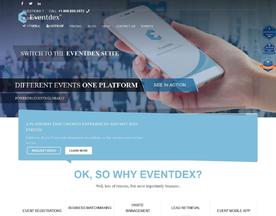How to start an event planning business ? Start by researching the market, crafting a business plan, securing funding, and building a network. Focus on niche services and marketing.
Learning how to start an event planning business can be a lucrative and rewarding career for those who are organized, creative, and have a passion for bringing people together. However, like any business venture, it requires careful planning and execution to be successful. In this article, we will explore the steps involved in how to start an event planning business, from understanding the industry to planning and executing events.

Understanding the Event Planning Industry is the first step to learning how to start an event planning business. It involves researching the market, identifying target customers, and understanding the competition. This step will help you determine your niche and develop a unique selling proposition that sets you apart from other event planners. Additionally, it is essential to understand the legal and regulatory requirements to know how to start an event planning business in your area.
Creating Your Business Plan is the next step in understanding how to start an event planning business. Your business plan should include your mission statement, target market, marketing strategy, financial projections, and other important details. It will serve as a roadmap for your business and help you stay on track as you grow. By following the steps outlined in this article, you can learn how to start an event planning business with confidence and build a successful career in this exciting industry.
Key Takeaways
- Understanding the event planning industry is crucial for success.
- Creating a comprehensive business plan is essential to understand how to start an event planning business.
- Building a unique selling proposition and marketing strategy can help set your business apart from the competition.
Understanding the Event Planning Industry
Knowing how to start an event planning business requires a solid understanding of the industry. This section will cover the key aspects of the event planning industry that every aspiring entrepreneur should be familiar with.
Market Research and Target Market
Before learning how to start an event planning business, it is essential to conduct thorough market research to identify the target market. This will help event planners understand the needs and preferences of their potential clients. Research can be conducted through online surveys, focus groups, or by attending conferences and events in the industry.
Once the target market has been identified, event planners should tailor their services to meet the specific needs of their clients. This may involve specializing in corporate events, social events, weddings, birthdays, or other types of events.
Identifying Your Niche
Identifying a niche is crucial for event planners to stand out in a crowded market. By specializing in a particular type of event or service, event planners can differentiate themselves from competitors and attract clients who are looking for specific expertise.
For example, an event planner who specializes in eco-friendly events may appeal to clients who prioritize sustainability. Similarly, an event planner who specializes in destination weddings may attract clients who are looking for a unique and memorable experience.
Analyzing Competitors
Analyzing competitors is an essential step learning how to start an event planning business. By understanding the strengths and weaknesses of competitors, event planners can develop strategies to differentiate themselves and gain a competitive advantage.
Event planners can analyze competitors by attending their events, reviewing their websites and social media profiles, and conducting online research. This will help them identify areas where they can improve their services and develop unique value propositions.
Overall, understanding how to start an event planning business is essential for aspiring entrepreneurs who want to start a successful business. By conducting market research, identifying a niche, and analyzing competitors, event planners can position themselves for success in this dynamic and exciting industry.
Here is a resource with more information on how to start an event planning business.
Creating Your Business Plan

Learning how to start an event planning business requires a solid business plan to ensure its success. A business plan will help you define your goals, identify your target market, and outline your strategies for marketing and sales. Here are some key subsections to consider when creating your business plan:
Executive Summary and Objectives
The executive summary is a brief overview of your business plan, highlighting the key points and objectives. It should include a description of your business, your target market, your competitive advantage, and your financial projections. This section should be concise and compelling, as it will be the first thing potential investors or partners will read.
Your objectives should be specific, measurable, achievable, relevant, and time-bound (SMART). They should also align with your overall business strategy. For example, your objective may be to become the go-to event planner for corporate events in your city within the next three years.
Services and Products Offered
Your event planning business may offer a variety of services and products, such as event design, vendor management, catering, and entertainment. It’s important to clearly define your services and products, as well as their pricing and delivery methods. This will help you differentiate yourself from your competitors and attract your target market.
Marketing and Sales Strategy
Your marketing and sales strategy should outline how you plan to reach your target market and convert them into paying customers. This may include tactics such as social media marketing, email marketing, networking events, and advertising. You should also identify your unique selling proposition (USP), which is what sets you apart from your competitors.
One external resource that may be helpful for creating a business plan is the Small Business Administration (SBA) website. They offer a variety of free resources and templates for entrepreneurs starting a business.
Setting Up Your Business
Knowing how to start an event planning business requires careful planning and preparation. Setting up your business involves choosing a legal structure, registering your business, and obtaining necessary licenses and permits.
Choosing a Legal Structure
Choosing the right legal structure for your event planning business is crucial. It will determine the taxes you pay, the level of personal liability you assume, and the paperwork you need to file. The most common legal structures for small businesses include sole proprietorship, partnership, limited liability company (LLC), and corporation.
Sole proprietorship is the simplest and most common legal structure for small businesses. It’s easy to set up and maintain, and the owner has complete control over the business. However, the owner is personally liable for all business debts and obligations.
Partnership is a legal structure for two or more people who share ownership of a business. Each partner contributes to the business and shares in the profits and losses. Partnerships can be general or limited, and each partner is personally liable for the business debts and obligations.
LLC is a legal structure that combines the liability protection of a corporation with the tax benefits of a partnership. LLC owners are called members, and they are not personally liable for the business debts and obligations. LLCs are easy to set up and maintain, and they offer flexibility in management and ownership.
Registering Your Business
Once you have chosen a legal structure, you need to register your business with the appropriate state and local agencies. This involves obtaining an Employer Identification Number (EIN) from the IRS and registering your business with the state and local tax authorities. You may also need to register for sales tax, unemployment insurance, and workers’ compensation insurance.
Obtaining Necessary Licenses and Permits
Before knowing how to start an event planning businesses may require various licenses and permits, depending on the type of events they plan and the location of the events. These may include business licenses, liquor licenses, and certifications. It’s important to research the licensing requirements in your area and obtain all necessary licenses and permits before starting your business.
To learn more about how to start an event planning business, check out this guide from the Small Business Administration.
Managing Your Finances

Knowing how to start an event planning business requires careful financial management. In this section, we will cover the key aspects of managing your finances, including startup costs and budgeting, opening a business bank account, and handling taxes and payroll.
Startup Costs and Budgeting
Before looking at how to start an event planning business, it’s essential to determine your startup costs and create a budget. This will help you plan for expenses and ensure that you have enough startup capital to cover initial costs. Startup costs may include expenses such as office space, equipment, marketing, and insurance.
To create a budget, start by estimating your fixed and variable costs. Fixed costs are expenses that remain constant, such as rent and insurance, while variable costs fluctuate based on the number of events you plan. Once you have a clear picture of your expenses, you can create a budget that covers your costs and allows for growth.
Opening a Business Bank Account
Opening a business bank account is a critical step in managing your finances. A business bank account helps you keep your personal and business finances separate, which makes it easier to track expenses and manage cash flow. It also allows you to accept payments from clients and pay vendors.
When choosing a business bank account, consider factors such as fees, interest rates, and online banking options. Look for a bank that offers features that meet your business’s needs, such as mobile banking or remote deposit.
Handling Taxes and Payroll
As a business owner, you are responsible for handling taxes and payroll. This includes paying payroll taxes, withholding taxes from employee paychecks, and filing tax returns. It’s essential to stay up-to-date with tax laws and regulations to avoid penalties and fines.
Consider hiring an accountant or bookkeeper to help you manage your finances and ensure compliance with tax laws. They can also help you create a payroll system and track expenses to maximize deductions.
In conclusion, managing your finances is a crucial aspect of starting and running a successful event planning business. By creating a budget, opening a business bank account, and staying up-to-date with taxes and payroll, you can ensure that your finances are in order and set your business up for success. For more information on managing your finances, check out this resource from the Small Business Administration: Managing Your Finances.
Building Your Brand and Marketing

Marketing is a crucial aspect of any business, and event planning is no exception. Building a strong brand and marketing your business effectively can help you attract clients and grow your business. Here are some key steps to take when developing your marketing plan.
Developing a Marketing Plan
Before you begin advertising and promoting your event planning business, you need to develop a marketing plan. This will help you identify your target market, set marketing goals and objectives, and create a plan to reach your target audience. Your marketing plan should include:
- A description of your target market
- Your unique selling proposition (what sets you apart from competitors)
- Marketing goals and objectives
- A budget for marketing and promotion
- A timeline for implementing your marketing plan
Advertising and Promotion
Once you have developed your marketing plan, it’s time to start advertising and promoting your event planning business. There are many different advertising and promotion strategies you can use, including:
- Print and online advertising
- Social media marketing
- Email marketing
- Networking and word-of-mouth marketing
- Participating in trade shows and events
When choosing advertising and promotion strategies, it’s important to consider your target market and what methods are most likely to reach them. You should also track the effectiveness of your advertising and promotion efforts to determine what is working and what needs to be adjusted.
Creating an Online Presence
In today’s digital age, having a strong online presence is essential for any business. This includes having a website, social media accounts, and other online profiles. When creating your online presence, consider the following:
- Choose a domain name that is easy to remember and reflects your business name or services
- Use social media to connect with potential clients and showcase your work
- Create a blog to share industry news, tips, and advice
- Use search engine optimization (SEO) techniques to improve your website’s visibility in search results
Building a strong brand and marketing your event planning business effectively takes time and effort, but it can pay off in the long run. By developing a strong marketing plan, using effective advertising and promotion strategies, and creating a strong online presence, you can attract clients and grow your business. For more information on how to start an event planning business and marketing strategies, check out this article.
Acquiring Resources and Equipment

Starting by looking to how to start an event planning business requires a significant amount of resources and equipment. Acquiring the right resources and equipment is crucial to ensure that events run smoothly and efficiently. This section will cover some essential resources and equipment that event planners need to acquire to run their business successfully.
Sourcing Event Equipment
Event equipment is essential for any event planning business. It includes everything from tables, chairs, and linens to lighting, sound systems, and staging equipment. Event planners need to source quality equipment to ensure that events are successful and meet their clients’ expectations.
One way to source equipment is to purchase it outright. However, this can be expensive, and it may not be feasible for new event planning businesses. Another option is to rent equipment from reputable rental companies. This option allows event planners to access a wide range of equipment without having to invest large sums of money upfront.
When sourcing event equipment, it’s essential to consider the quality of the equipment, the rental company’s reputation, and the cost. Event planners should also ensure that the equipment they rent is appropriate for the type of event they are planning.
Choosing Software and Technology
In addition to equipment, event planners also need to choose the right software and technology to manage their business effectively. Project management software is essential for managing tasks, timelines, and budgets. Event planners should choose software that is user-friendly and offers the features they need, such as task assignment, progress tracking, and budget management.
Event registration software is also essential for managing event registration and ticket sales. Eventbrite is a popular event registration platform that event planners can use to manage registration and ticket sales. It’s user-friendly, offers a range of features, and has a high level of security.
When choosing software and technology, event planners should consider their business needs and choose software that meets those needs. They should also ensure that the software they choose is user-friendly and offers reliable customer support.
Overall, acquiring the right resources and equipment is crucial to the success of an event planning business. By sourcing quality equipment and choosing the right software and technology, event planners can ensure that events run smoothly and efficiently.
Assembling Your Team

Learning how to start an event planning business requires a team of professionals who can help you deliver successful events. Assembling the right team is essential to ensure that your clients get the best experience possible. Here are two important aspects to consider when building your team:
Hiring Employees and Managers
When hiring employees and managers, look for people who have experience in the event planning industry. They should have excellent communication and organizational skills, be able to work under pressure, and be passionate about delivering high-quality events. You can post job openings on job boards, social media, or your website.
It’s important to conduct interviews to assess the candidates’ suitability for the job. Ask them about their experience, skills, and what they can bring to your team. You can also ask for references to verify their work history.
Once you’ve hired your team, make sure to provide them with the necessary training and resources to help them perform their jobs effectively. This includes providing them with the right tools, such as event planning software, and assigning them clear roles and responsibilities.
Building Relationships with Vendors
Learning how to start an event planning business involves working with various vendors, including caterers, florists, photographers, and others. Building strong relationships with these vendors is crucial to ensure that you can deliver high-quality events.
When selecting vendors, look for those who have a good reputation in the industry and can provide quality services at a reasonable price. You can also ask for referrals from other event planners or search for vendors online.
It’s important to communicate clearly with your vendors and establish a good working relationship with them. This includes negotiating contracts, discussing the event details, and providing them with clear instructions on what is expected of them.
One way to build relationships with vendors is to attend industry events and conferences. This will give you the opportunity to meet new vendors, learn about the latest trends in the industry, and network with other event planners.
To learn more about building relationships with vendors and how to start an event planning business, check out this resource.
Planning and Executing Events
Project Management and Coordination
When it comes to how to start an event planning business, project management and coordination are essential skills to have. An event coordinator must be able to manage all aspects of an event, from setting a budget to coordinating vendors and ensuring that everything runs smoothly on the day of the event. It is important to keep track of all the details, timelines, and deadlines to ensure that nothing falls through the cracks.
One effective way to manage projects is to use project management software. This can help keep track of tasks, timelines, and budgets. Some popular project management tools include Trello, Asana, and Monday.com. These tools allow event coordinators to manage all aspects of an event in one place, making it easier to stay organized and on top of everything.
Working with Clients and Vendors
Another important aspect of event planning is working with clients and vendors. It is important to establish clear communication with clients to understand their expectations and needs for the event. This includes discussing the type of event, the budget, and any specific requirements or requests.
When it comes to vendors, it is important to research and select vendors that are reliable and provide quality services. This includes caterers, decorators, entertainment providers, and more. It is important to negotiate contracts with vendors to ensure that all services and costs are clearly outlined.
One useful resource for finding vendors is Eventective. This website allows event coordinators to search for vendors by location, type of service, and budget. It also provides reviews and ratings from other event coordinators, making it easier to select reliable vendors.
Overall, effective project management and communication with clients and vendors are key to planning and executing successful events. By staying organized and working with reliable vendors, event coordinators can ensure that every detail is taken care of and the event runs smoothly.
Growing Your Business

As your event planning business begins to gain traction, it’s important to focus on growth strategies that will help you expand your services and reach new markets. Here are some tips to help you take your business to the next level:
Networking and Industry Events
Attending industry events and networking with other professionals in the field can be a great way to grow your business. Not only can you make valuable connections with potential clients and partners, but you can also stay up-to-date on the latest trends and best practices in event planning.
Consider attending trade shows, galas, celebrations, reunions, fundraisers, product launches, and music festivals to meet new people and showcase your services. You can also join professional organizations like the International Live Events Association (ILEA) or the National Association of Catering and Events (NACE) to connect with other event professionals and gain access to educational resources and industry news.
Expanding Services and Markets
Another way to grow your business is by expanding your services and targeting new markets. Consider offering additional services like event design, catering, or entertainment to attract new clients and increase revenue. You can also target new markets like corporate events, weddings, or non-profit fundraisers to diversify your client base.
To successfully expand your services and markets, it’s important to do your research and understand the needs and preferences of your target audience. Conduct market research, analyze industry trends, and gather feedback from your existing clients to inform your growth strategy.
Remember, growing your business takes time and effort, but with the right strategies and mindset, you can achieve long-term success. For more tips on how to start an event planning business, check out this resource.
Professional Development

Learning how to start an event planning business requires a combination of creativity, organizational skills, and industry knowledge. It is important for event planners to stay up-to-date with the latest trends and techniques in the industry to provide the best possible service to their clients. Professional development is a crucial aspect of how to start an event planning business.
Continuing Education
Event planners should consider taking courses or attending workshops to improve their skills and knowledge. There are many options available online and in-person that cover a wide range of topics, such as event design, budgeting, marketing, and project management. These courses can help event planners stay current with industry trends and best practices.
One popular option for continuing education is the Certified Special Events Professional (CSEP) designation. This certification is offered by the International Live Events Association (ILEA) and requires passing an exam that covers topics such as event design, logistics, and risk management. Obtaining this certification can help event planners demonstrate their expertise and credibility to clients.
Obtaining Industry Certifications
Another way to demonstrate expertise and credibility is by obtaining industry certifications. The Certified Meeting Professional (CMP) designation is a widely recognized certification for event planners who specialize in meetings and conferences. This certification is offered by the Events Industry Council and requires passing an exam that covers topics such as strategic planning, financial management, and marketing.
Event planners should research and consider obtaining industry certifications that are relevant to their specific niche or area of expertise. These certifications can help event planners stand out in a competitive industry and provide added value to clients.
To stay up-to-date with the latest industry trends and best practices, event planners should prioritize professional development. Continuing education and obtaining industry certifications are two key ways to improve skills and demonstrate expertise to clients. Event planners should research and take advantage of the many options available to them to stay competitive in the industry.
Here is a resource with more information on how to start an event planning business and certifications.
Frequently Asked Questions

What are the initial steps to becoming an event planner with no prior experience?
If you have no prior experience in event planning, the first step is to gain knowledge in the field. You can start by reading books, attending workshops, and taking online courses in event planning. Another way to gain experience is to offer your services to friends and family for free or at a discounted rate. This will give you an opportunity to practice your skills and build your portfolio.
What are the legal requirements to set up an event planning business?
The legal requirements for setting up an event planning business vary depending on your location. Generally, you will need to register your business, obtain a business license, and get liability insurance. It’s also important to have a contract that outlines the terms of your services, payment, and cancellation policy.
How to start an event planning business from home?
How to start an event planning business from home is possible, but it requires careful planning and organization. You will need to create a dedicated workspace, set up a website, and create a marketing plan to attract clients. It’s also important to have a system for managing your finances and keeping track of your expenses.
What is a typical startup checklist for an event planning business?
A typical startup checklist for an event planning business includes creating a business plan, registering your business, obtaining a business license, getting liability insurance, creating a website, setting up a workspace, creating a marketing plan, setting up a system for managing finances, and creating a contract for your services.
How to start an event planning business without any capital, and if so, how?
It is possible to start an event planning business without any capital, but it requires a lot of hard work and dedication. One way to do this is to offer your services for free or at a discounted rate to build your portfolio and gain experience. You can also start small and reinvest your profits back into your business to help it grow.
How profitable is an event planning business, and what factors contribute to its success?
The profitability of an event planning business varies depending on factors such as the type of events you plan, your target market, and your pricing strategy. However, with the right marketing and planning, an event planning business can be very profitable. Factors that contribute to its success include strong organizational skills, attention to detail, creativity, and excellent customer service.
For more information on how to start an event planning business, check out this resource.















